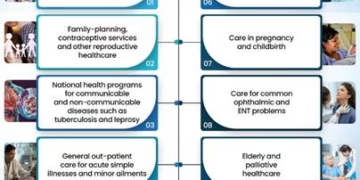NEWARK, N.J., December 22, 2018 – Bright spots and areas of optimism exist within traditionally underserved groups in the face of income inequality, retirement insecurity and household debt, new data from Prudential Financial, Inc. (NYSE: PRU) reveals. The in-depth exploration of data from Prudential’s Financial Wellness Census™ highlights the dramatic differences in the experiences of diverse populations within the U.S., many of whom were disproportionately impacted by the 2008 financial crisis.
The report, “The Cut – Exploring Financial Wellness Within Diverse Populations,” is based on a survey of more than 3,000 U.S. adults and examines the financial lives of a diverse group of Americans: women, black Americans, Latino Americans, Asian Americans, caregivers, and the LGBTQ community.
“Resilient and diverse communities are the foundation of a stable and strong economy. Their progress enables our progress,” said Judy Dougherty, Prudential’s financial wellness officer. “This new analysis presents a layered portrait of the financial lives of Americans and exposes factors that underlie and sometimes impede our ability to achieve financial security. These insights are critically important to Prudential’s businesses, informing our efforts to develop products and services that help more Americans improve their financial health.”
The data highlights challenges and opportunities
The research details the wide range of outcomes, experiences and attitudes among traditionally underserved communities. For example:
- By significant margins, black Americans at all income levels are more likely than the general population to prioritize helping others financially: taking care of parents or other family members, providing college tuition for their children, helping children with a down payment on a home, leaving an inheritance to their heirs, and giving to charity.
- The average annual income for women in the survey was $52,521, compared with $84,006 for men—women reported earning about 63 cents for every dollar earned by men. Additionally, 54 percent of all women reported being the primary breadwinner in their household, irrespective of its makeup.
- Thirty-eight percent of caregivers in the study do not think they will ever be able to retire versus only 25 percent of non-caregivers. Although caregivers for children with special needs were as likely as other caregivers and non-caregivers to have a defined contribution retirement plan, they were also the most likely to have taken a loan or hardship withdrawal.
“The journey to financial wellness is deeply personal,” said Lata Reddy, Prudential’s senior vice president, Diversity, Inclusion & Impact. “While there are common experiences that tie us all together, there are also distinct factors that are unique to our individual journeys that impact the ultimate destination. These factors need to be clearly understood for true progress to be made. The first step is to actively listen to the voices in our communities, and it is in this spirit that this research was conducted.”












































